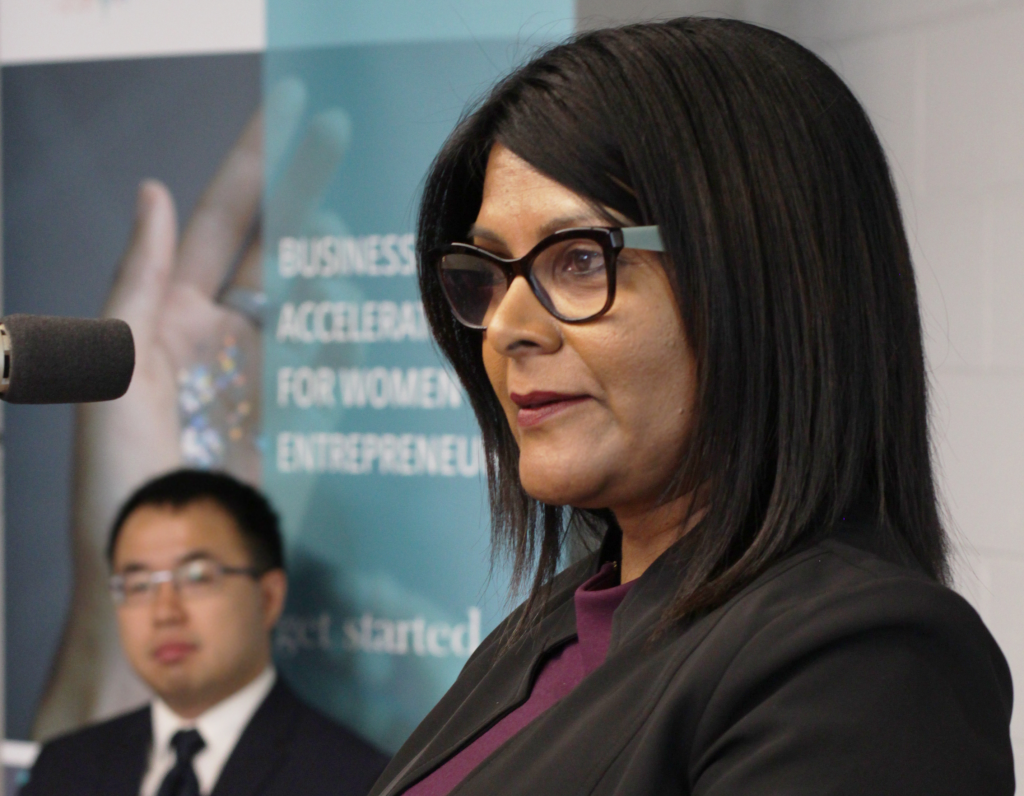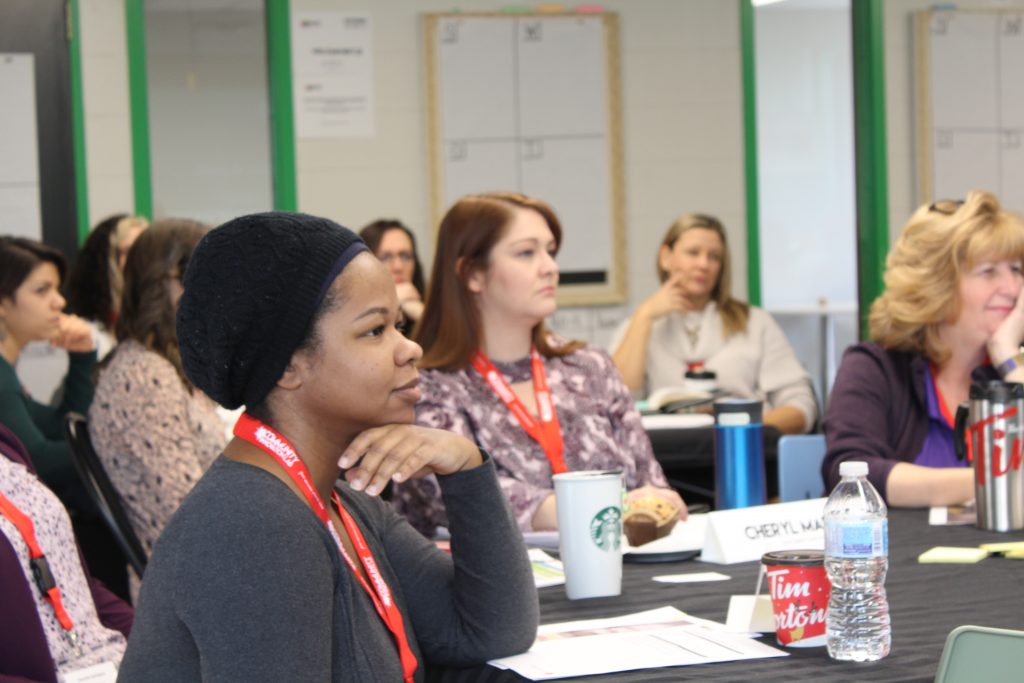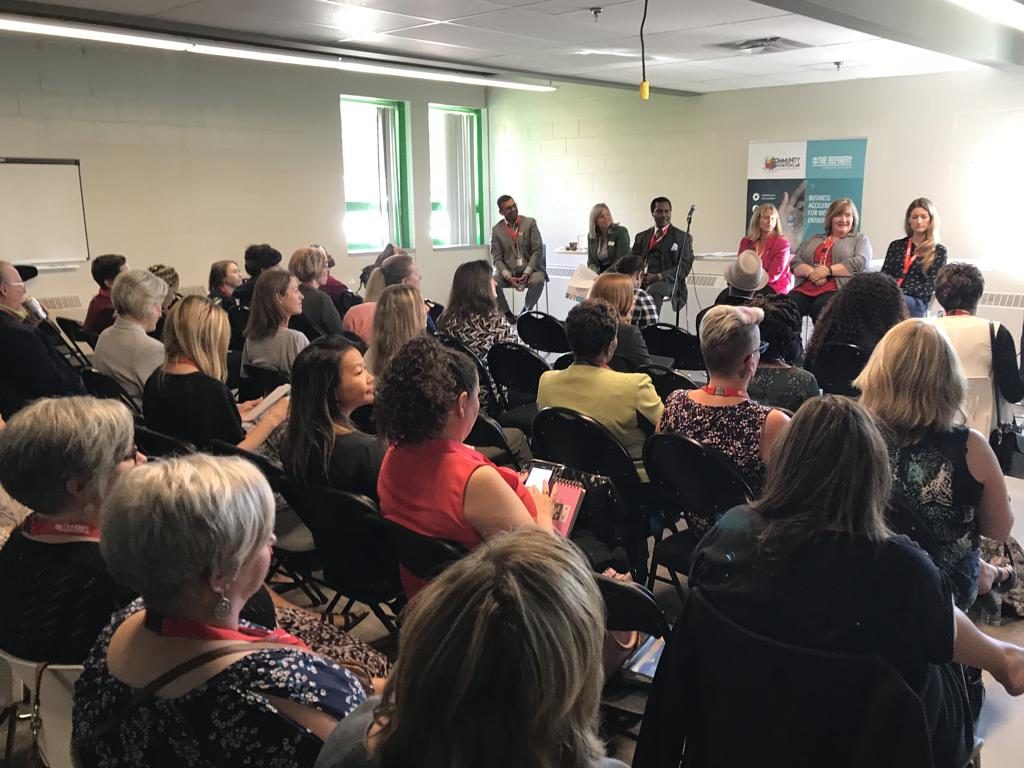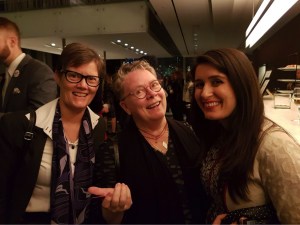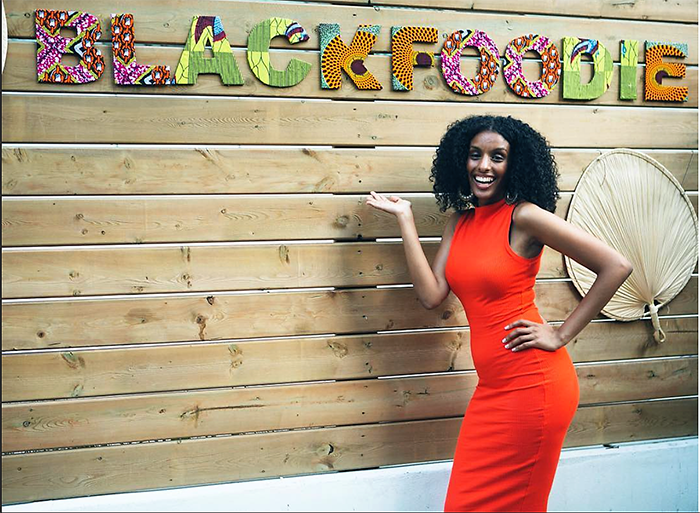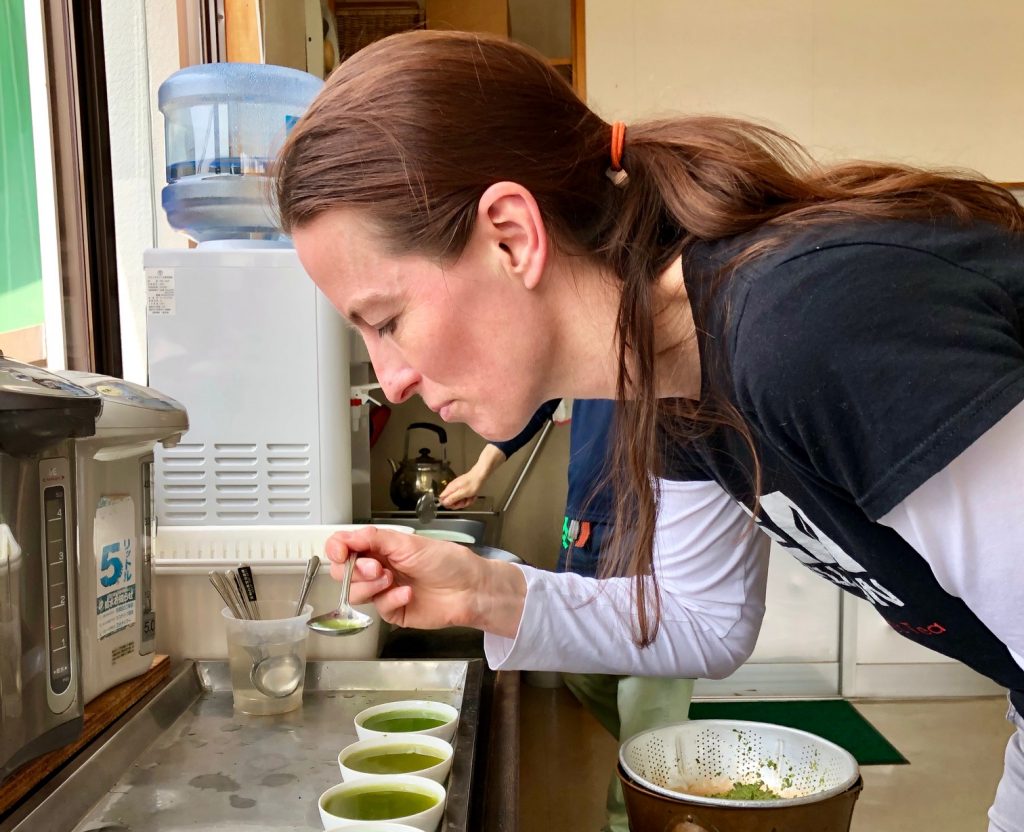
Annabel Kalmar learned first-hand how hard it is for farmers to earn fair prices for their products. As a student of agriculture economics in the late 1990s, she harvested coffee in the fields of the Dominican Republic, interviewing farmers along the way. The experience sparked a passion for changemaking.
“I wanted to help farmers get access to a different way to market,” explains the German-born entrepreneur, who went on to work in microfinance with the World Bank, earn an MBA at the London School of Business, and work in the UK as a business strategist.
Recently, she pivoted to entrepreneurship as a means for changemaking. After moving to Toronto with her husband and three children in 2017, Kalmar launched Tea Rebellion. Her idea—two decades in the steeping—is to disrupt the way tea is traditionally marketed, traded, and consumed. By buying and selling single-source, direct-trade tea, her company creates economic opportunities for several female-led farms in developing countries, takes an active role in community building, and supports organic farming methods.
But Kalmar’s ambitions aren’t just altruistic. She grew up in Germany drinking loose-leaf black tea, but what she tasted of London tea culture failed to impress.
“I was always disappointed with what was in front of me,” says Kalmar, explaining that mass-produced teas are typically blended from multiple sources, then finely ground and packaged in bags. What ends up in the cup, she contends, is undrinkable without sugar and milk.
As a student of agriculture economics, Kalmar had seen how new trade models transformed chocolate, coffee, and wine. Educated consumers came to appreciate—and pay more for—flavours associated with particular regions, ensuring that growers of those premium products are fairly compensated.
“A lot of people learn about wine, but they know nothing about tea,” says Kalmar. “I wanted to bring that knowledge and appreciation of the origins to more tea drinkers.”
With Tea Rebellion, she intends to shake up the status quo. “I’m not just selling tea.”
Instead of participating in the commodity markets in tea-growing countries—many with roots in colonialism—Kalmar initially sought out fair-trade certified suppliers. Since her World Bank days, she knew the certification system could improve working conditions on farms by setting standards for fair pay and ethical treatment of producers. She reached out to Fair Trade Canada and began contacting farmers.
To her surprise, farmers were not saying, “Oh great, let’s do fair trade,” remembers Kalmar. “The farms I talked to said it’s too difficult. It creates additional costs. There is too much bureaucracy.”
Rather, the farmers—even some fair-trade certified producers—pointed to direct trade as a preferred alternative.
Both fair trade and direct trade have their places, according to Kalmar. They may create similar results in some cases, but they start with different goals.
Fair trade aims to improve the lives of farmers by setting ethical and environmental standards and creating transparency. Certification establishes minimum prices to ensure farmers are paid fairly. Incidentally, fair-trade standards may also improve the quality of the end product.
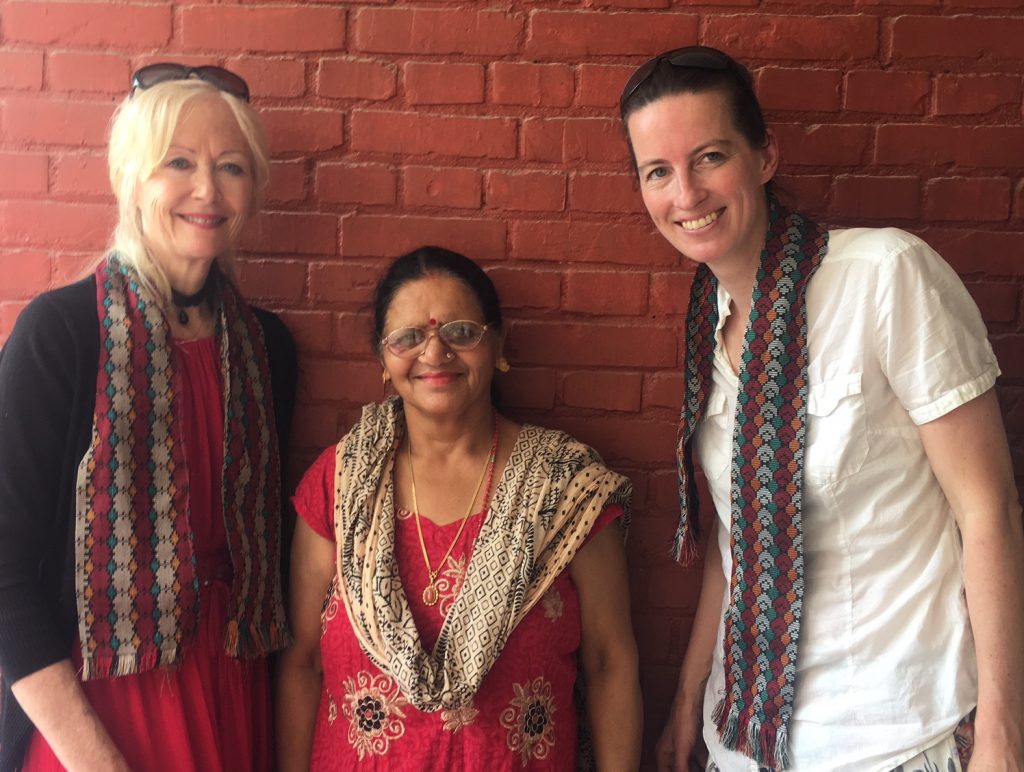
The goal of direct trade is to bring premium products to market. This model allows farmers to differentiate their products and charge prices that are typically higher than the minimums set in fair-trade systems. Higher prices will almost certainly improve the lives of farmers.
Kalmar dug into the research and discovered that many consumers are confused by a recent proliferation of certifications, which influenced her decision to change her strategy to direct trade.
Tea Rebellion now buys from six farms around the world: Japan, Indonesia, Taiwan, Nepal, Kenya, and Malawi. That allows Tea Rebellion to work with smaller, socially minded farms—not just those that are scaled to afford a fair-trade certification process.
The direct relationship means there is no middleman; Kalmar can visit frequently to influence the end product and the social impact of the farm.
In Nepal, Kalmar helped raise CAD$10,000 to build a primary school for the children of workers living on the tea farm. The school will save some 30 children from walking several hours over rough terrain to attend school, which improves attendance and frees parents to work consistently.
In Malawi, Kalmar chose to buy from a farm that provides health care infrastructure for the community surrounding the farm. In Japan, where chemical farming methods have historically been the norm, Tea Rebellion works with a pioneer of organic farming.
In three of the six farms she buys from, Kalmar has formed close partnerships with women in leadership positions, strengthening their positions in what has been a male-dominated business. She didn’t initially set out to work with female-led farms, but she found that in developing countries where language or gender created barriers, she was able to form better relationships with farms where women led.
For example, in Taiwan, Kalmar works with Ai Fang, one of two daughters involved at Jhentea, a family-owned farming operation. Ai Fang has worked in the family business since the age of 18, learning the art and science of tea growing, processing, packaging, and brewing from her mother.
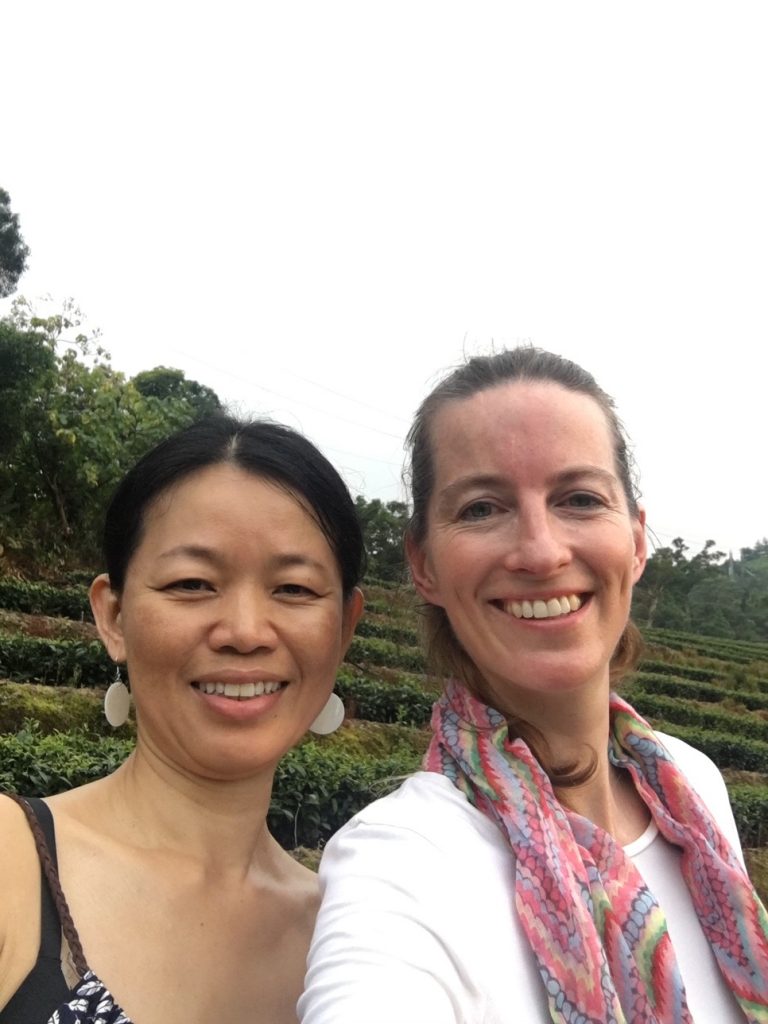
According to Jhentea’s website, the company was founded by a man in the early 19th century, but a marital split in the mid-20th century left a woman in charge. She was the first female tea master in the region, and ever since the farm has been passed down to female family members. Ai Fang’s daughter, Valencia, who is now learning about tea, represents the next generation.
In Shizuoka, Japan, the Kinezuka family operates NaturaliTea, a cooperative of farmers. Though the farm’s formal leaders are men, Kalmar formed a direct business relationship with one of male founder’s two daughters, including Tamiko Kinezuka, who manages the farm’s tea processing and is responsible for quality control. That relationship has been beneficial to her career.
“In Japan, the tea industry is still overwhelmingly controlled by older men at all levels, from the farms to the markets,” Kinzuka explains. “Some of this is changing as younger generations take over, but the shift is very slow. Working with someone like Annabel allows us to demonstrate the unique contributions that we can make, and prove our commitment to rejuvenating a stagnating industry.”
Kalmar loves to share the stories of growers she works with, shining a spotlight on tea producers through Tea Rebellion’s packaging, website, and social media. When tea drinkers know more about growers, growing methods, and the country of origin, they can learn to appreciate the difference between the chocolatey undertone of a black tea from the high mountains of Nepal, and the bright and floral flavour of a black tea grown in Taiwan. Says Kalmar, “I want to help people develop their palates.”
By telling the tale behind each tea, Tea Rebellion also shares power with farmers. They can then develop recognizable brands, creating a rationale for higher prices, which injects more money and investment into their communities.
Kalmar has a vision that would connect tea growers and tea drinkers, as well as put Tea Rebellion on the tips of tongues everywhere. She would like to rival a global brand like Twinings as the “go-to” for tea drinkers, and source tea in many more tea-growing countries.
For now, Kalmar is bootstrapping her business growth, investing her own funds, working from home, and depending on interns to lend a hand. Her website lists 24 types of tea (you can order direct) and she sells to some 25 retailers, most of them in Toronto. Prices are similar to other premium brands, though competing North American labels such as Tease and David’s Tea don’t promise single-sourced products.
Kalmar’s goals include hiring a team and marketing her brand at tea festivals and conferences around the world. That will require a significant investment, and she’s gearing up to present her idea to investors.
But the ultimate goal is to build prosperous tea farms. “If I can build a sustainable business with Tea Rebellion, I can support these farms for the next 10, 20, 30 years,” she says. “And that’s really what I want.”
LiisBeth is women-owned/led. We support womxn founders, advocate for diversity, inclusion and economic inclusion, plus encourage emerging writers. Was this article of value to you? Consider helping us publisher more! [direct-stripe value=”ds1554685140411″]
![]()
This article was sponsored by Startup Here Toronto.
Related Reading
https://www.liisbeth.com/2016/12/07/black-foodie-turns-table/
https://www.liisbeth.com/2019/04/30/butchers-bakers-changemakers-the-nightwood-society/





